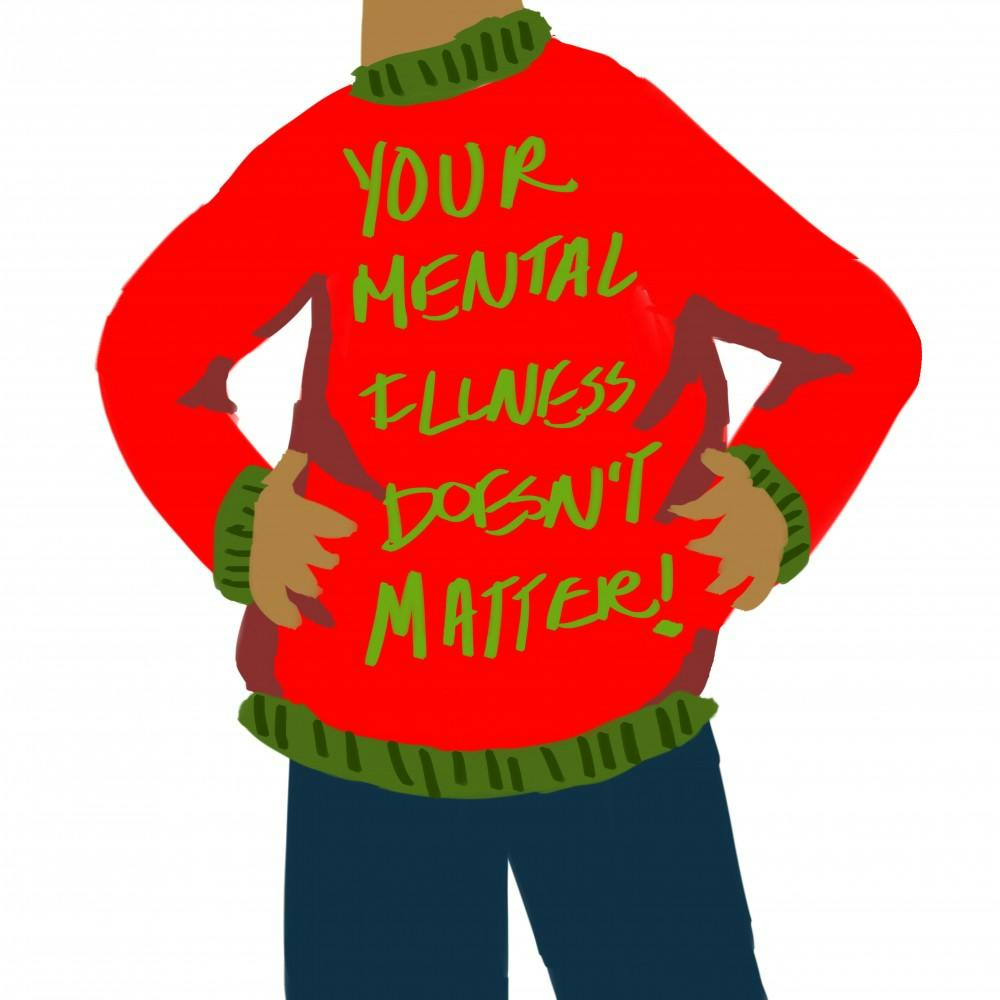The holiday season is fast approaching, and with it, retailers are stocking their shelves with Christmas-themed merchandise.
Some however, don’t know the line between products that display enthusiasm over the holidays versus products that gloss over important issues like mental illness.
Target recently found itself in trouble when it began selling holiday sweaters with the words “OCD: Obsessive Christmas Disorder” printed on the front of them.
The Editorial Board believes Target must stop selling these sweaters immediately.
According to the National Institute of Mental Health, obsessive-compulsive disorder is an anxiety disorder that affects roughly 2.2 million adults in America. The disorder makes people perform some of the same rituals, like counting objects, over and over again to relieve the symptoms of anxiety they feel when they think about thoughts that are upsetting.
By taking the letters OCD and re-appropriating them into the term “Obsessive Christmas Disorder,” Target is not acknowledging the debilitating effects of OCD and is using OCD as a joke to sell merchandise.
While a Target spokesperson apologized for the sweaters, according to Fortune magazine, the Editorial Board argues the store should go another step further and stop selling the sweaters altogether.
One of the reasons people living with OCD don’t reach out and get help for their disorders is because they’re afraid of facing stigma from people.
Seemingly harmless jokes like rephrasing OCD as “Obsessive Christmas Disorder” play into this dilapidating stigma that prevents people with mental health issues from getting appropriate help and treatment. According to the International OCD Foundation, some studies show that only about one in three people who have OCD will disclose their symptoms with their medical provider.
“Unfortunately, joking about mental illness is part of the problem,” the foundation has stated on its website, iocdf.org. “It perpetuates the idea that OCD is something that someone should be able to just ‘get over’ already. It infers that a person who can’t get over it is somehow weak or defective. It makes people hide their illness from friends and family, despite the fact that a strong support network is often the thing that makes treatment work.”
By continuing to sell these sweaters, despite previously apologizing for them, Target is still sending the message to its consumers that OCD is a joke and shouldn’t be taken seriously.
Through this action, this retailer is claiming that OCD is just a funny quirk some people have because they’re obsessed with gingerbread men, candy canes and other aspects of the holiday season.
Even though mental health issues are easier to hide than physical illnesses, they should be treated just as seriously. OCD, if not treated properly, can lead to major changes in a person’s life. Some people afflicted with the disorder might let their rituals interrupt their daily lives, to the point where they may spend up to an hour each day on harmful thoughts and rituals, according to NIMH.
The least Target could do is to remove the sweaters from its stores and issue a statement supporting those living with OCD. If it doesn’t, it will only continue to perpetuate the deadly culture of stigma that exists in America regarding mental illness.




